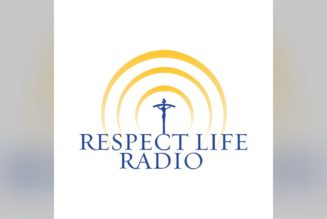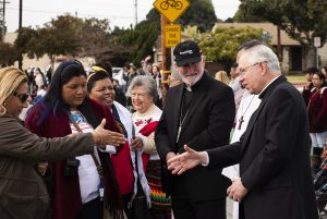24th Sunday in Ordinary Time
By Fr. Victor Feltes
In Jesus’ parable today, a servant owes his king an astronomically large debt, literally (in the original Greek) “ten thousand talents.” A talent was an ancient measurement of weight equaling something like seventy-five pounds. If these talents were owed to the king in silver, in the ancient world that amount would equal roughly 150,000 years’ worth of day labor. That’s something akin to several billion dollars today. It represents an unpayable personal debt.
The deeply indebted servant is brought in before the king and about to lose absolutely everything. But then he bows down, pleading. And his master, the king, moved with compassion, amazingly lets that servant go and forgives him the entire loan. How many people have ever been in a position to be personally owed billions of dollars? And who on earth would ever forgive a multibillion dollar debt owed to them? Who is this incredibly merciful king? Who is his indebted servant? This is a parable about God and us.
Our sins against the supremely good and all-holy God represent a personal debt we could never pay back on our own. Yet God is so merciful and so generous as to offer to forgive our debt of sin through Jesus’ perfect self-sacrifice. However, the Lord expects and demands we forgive others as well.
 The servant in Jesus’ parable departs and finds a fellow servant who owes him “one hundred silver denarii coins,” or one hundred days’ wages back then. Now that’s not nothing, it’s something on the order of thousands of dollars today, but compared to the debt forgiveness the first servant was offered by the king it is a very small amount. Yet he seizes the man and starts choking his neighbor, saying, “Pay back what you owe!” The man pleads but is shown no mercy as he’s thrown into debtors’ prison.
The servant in Jesus’ parable departs and finds a fellow servant who owes him “one hundred silver denarii coins,” or one hundred days’ wages back then. Now that’s not nothing, it’s something on the order of thousands of dollars today, but compared to the debt forgiveness the first servant was offered by the king it is a very small amount. Yet he seizes the man and starts choking his neighbor, saying, “Pay back what you owe!” The man pleads but is shown no mercy as he’s thrown into debtors’ prison.
Now other servants witness this and feel greatly disturbed. Attitudes of unforgiveness cause harmful ripples which negatively impact others. Those witnesses report the whole matter to their master, who then summons the first servant once again. “You wicked servant,” he says. “I forgave you your entire debt because you begged me to. Should you not have had pity on your fellow servant, as I had pity on you?” Then his king and master angrily hands the unforgiving servant over to be tortured until he should pay back the whole debt.
“So will my heavenly Father do to you,” Jesus declares, “unless each of you forgives his brother from his heart.” Elsewhere in Gospels, Jesus teaches, “If you do not forgive others, neither will your Father forgive your transgressions.” He will “forgive us our trespasses as we forgive those who trespass against us.”
Now many Christians find this teaching deeply disconcerting. They are troubled because they think that they just can’t forgive. I often find this is due to them imagining that forgiveness means things that it does not. Forgiving is not the same thing as forgetting. People say “forgive and forget,” but can’t force yourself to have amnesia. It’s possible you may remember another’s forgiven offense for the rest of your life. And forgiveness doesn’t mean saying what the offender did was OK. Their sin may have been a grave one, and saying otherwise would be a lie. Forgiveness doesn’t mean the offense no longer hurts. Only time and grace can heal some wounds, yet not even lingering pain precludes forgiveness. Forgiveness does not necessarily mean pretending nothing happened. Even with forgiveness, it may be wrong for everything to go back the way it was before. Forgiveness may lead to reconciliation and full restoration, but not always.
You can forgive anyone. You can forgive people even if they can’t be trusted. You can forgive someone even before they feel sorry for what they did. Why is this so? Because forgiveness simply means loving someone despite the wrongs that they have done. Forgiveness is a decision to love someone despite their sins. Is there anyone you’re worried that you haven’t forgiven? Then pray for them, because no one can simultaneously hate someone and pray for their greatest good at the same time.
Is there anyone you find it hard to pray for? Then that’s someone to pray for, for their sake and yours. The Holy Spirit may call you to further steps in reconciliation later, but begin with prayer. Forgiveness is a decision to love the wrongdoer like God loves us. As even the Prophet Sirach said, “Forgive your neighbor’s injustice; then when you pray, your own sins will be forgiven. …Hate not your neighbor; remember the Most High’s covenant, and overlook faults.”








